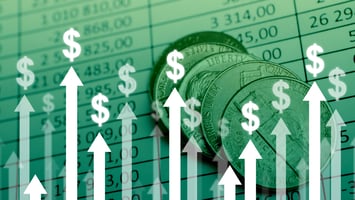
Dream Big
Achieve Financial Resilience with the Right Advisor
“You don’t have to see the whole staircase, just take the first step.” – Martin Luther King Jr.
Schedule a free portfolio evaluation now.
Dream Big
Achieve Financial Resilience with the Right Advisor
“You don’t have to see the whole staircase, just take the first step.” – Martin Luther King Jr.
Schedule a free portfolio evaluation now.
Actionable Insights From The Top Money Experts
Our Mission
To empower individual investors just like you to achieve, or even exceed, their financial dreams.
Our Values
Trust, honesty & integrity, combined with well-informed, practical and risk-managed approach to protecting & growing your wealth.
Our Transparency Promise
Our top priority is to find you an adviser you are confident is the best fit for your financial goals.
It’s a rare person who has both the investing expertise and time to actively manage a portfolio in today’s markets with long-term success. Most of us have a demanding life to focus on instead, so recruiting outside expertise often makes sense. Our top priority is to find you an adviser you are confident is the best fit for your financial goals. If that turns out to be a firm different than the one we endorse, that’s completely fine with us.
If you do decide to work with one of our endorsed advisers, please note we will receive a fee from them for the referral.
This fee does NOT lead to any increased costs to you. We mention this up front to demonstrate how much we value transparency in the referral process.
Wealthion is a service of Greylock Peak Investments, LLC, an investment adviser registered with the Securities and Exchange Commission (SEC). Registration of an investment adviser does not imply any specific level of skill or training and does not constitute an endorsement of the firm by the SEC. Greylock only transacts business in states in which it is properly registered or is excluded or exempted from registration.
Before seeking any adviser’s services or making an investment in a fund, investors must read and examine thoroughly the respective disclosure document and ADV brochures.
PAST RESULTS ARE NOT INDICATIVE OF FUTURE RESULTS. THERE IS RISK OF LOSS AS WELL AS THE OPPORTUNITY FOR GAIN WHEN INVESTING IN MANAGED FUNDS.
We believe the combination of expert insight and informed action gives the best odds of successfully achieving financial prosperity.
Schedule a free portfolio evaluation now.

Thousands of satisfied investors

SEC registered investment advisor

Team of professional financial advisors you can rely on
Trusted by
They respect my concerns, help clarify my goals, and are conscientious stewards of my wealth.”

-3.jpg?height=200&name=Thumbnail%20(4)-3.jpg)
